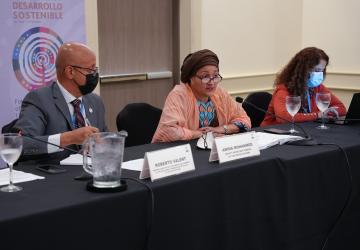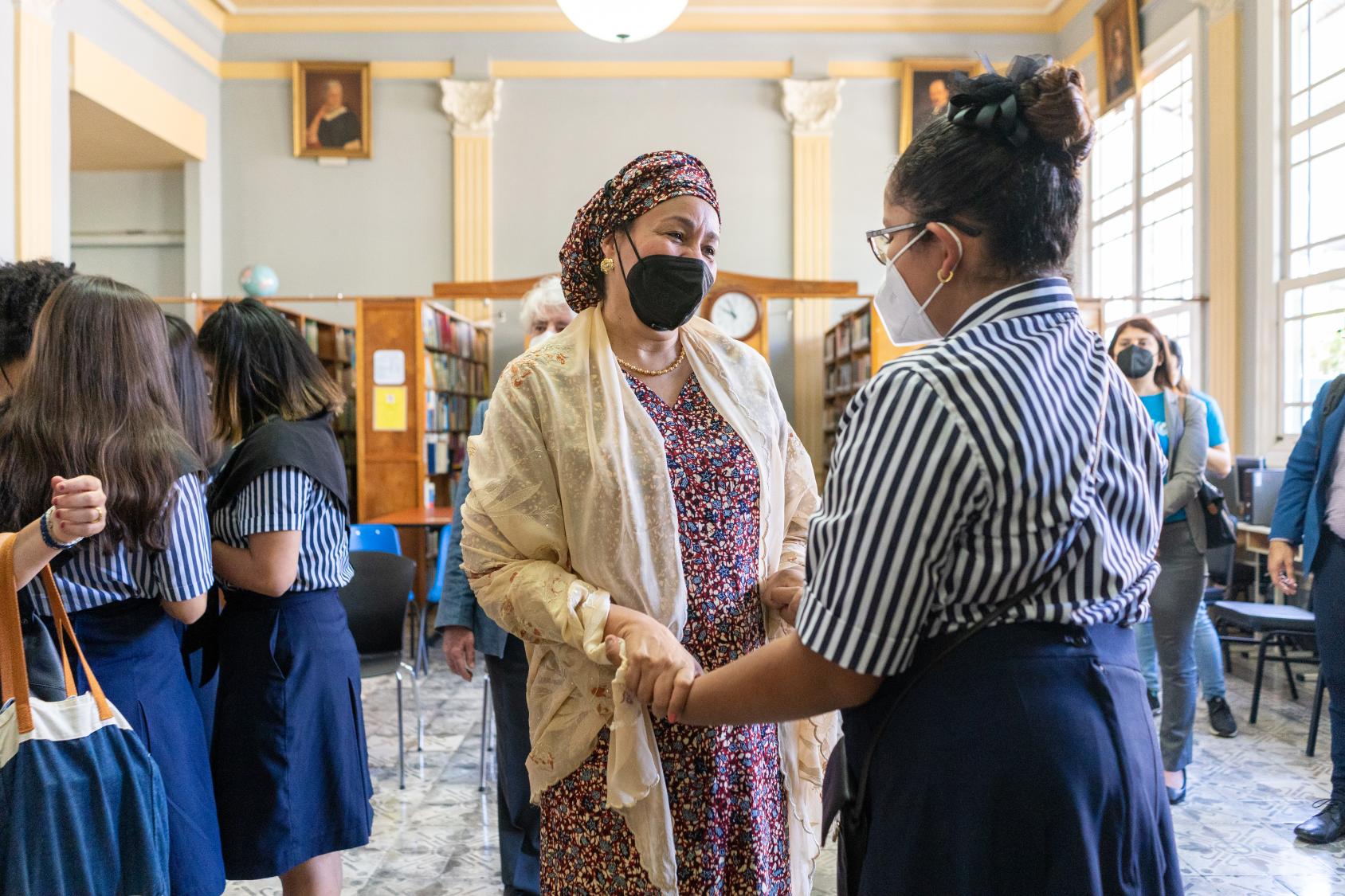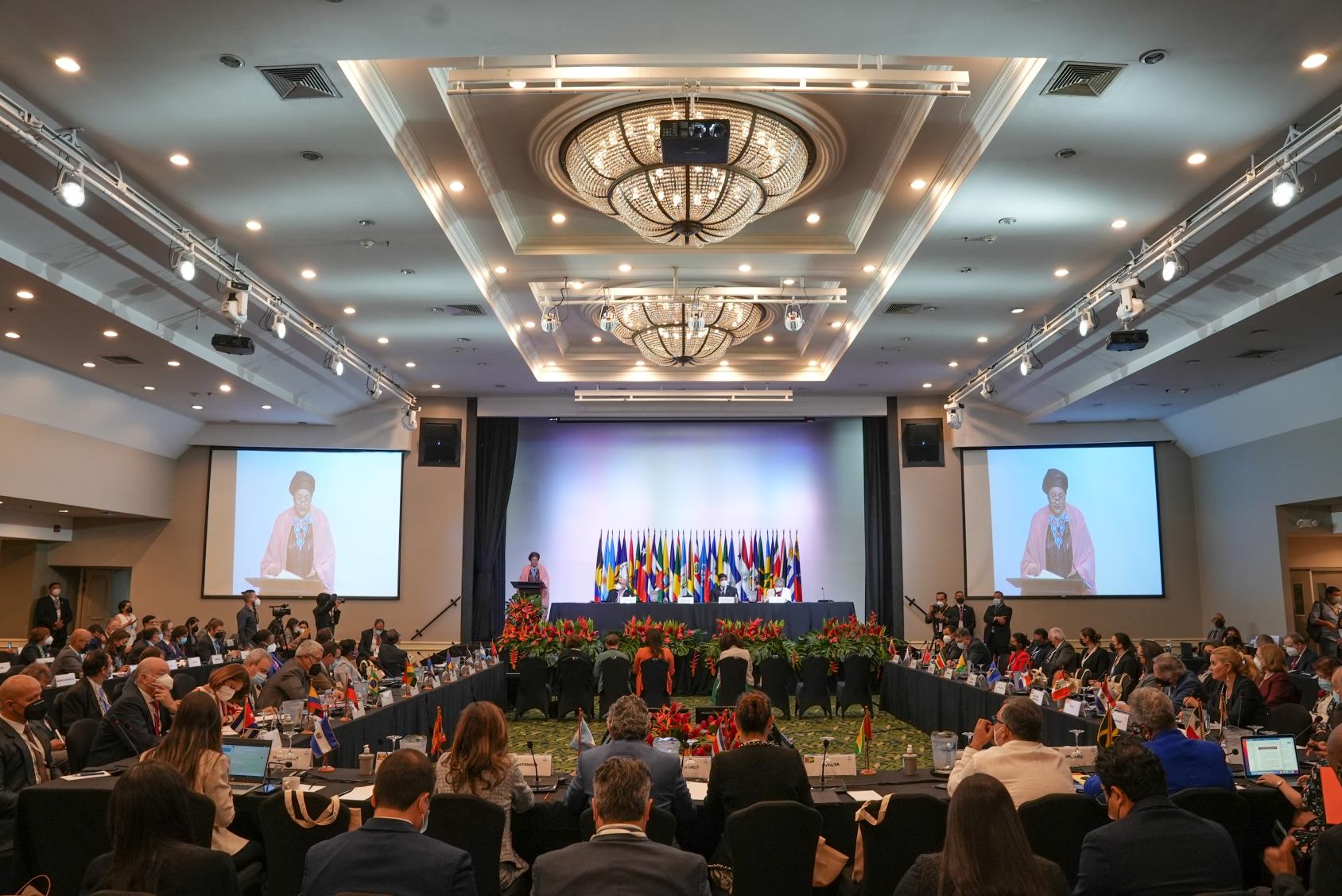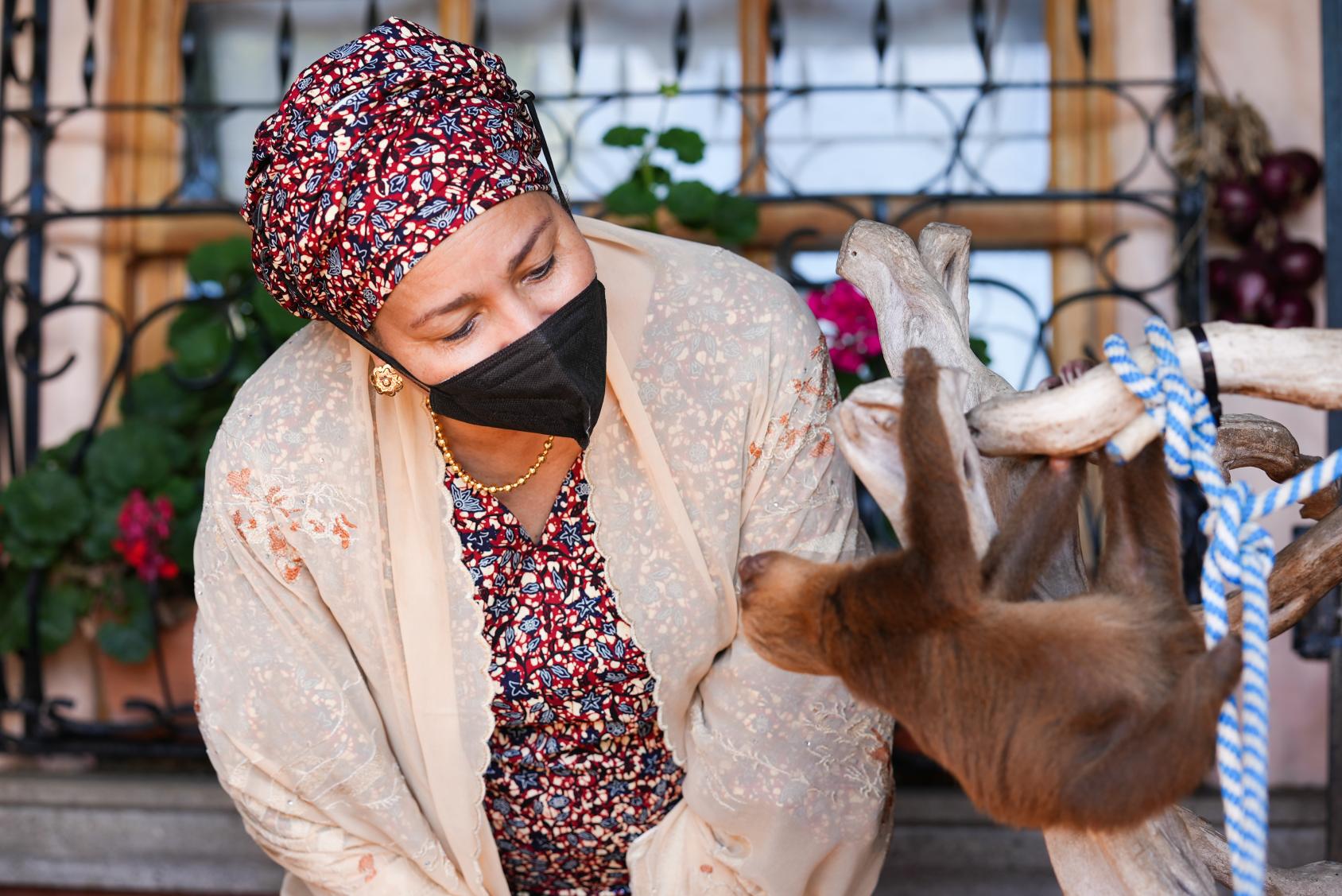UN Deputy Secretary-General calls on leaders to 'rescue' the SDGs and build a future of peace, dignity and prosperity

San José, Costa Rica, March 8, 2022 — “The Sustainable Development Goals (SDGs) in Latin America and the Caribbean require transitions in energy, digital connectivity, and food systems. More effective spending and investment in human capital is needed to unlock and accelerate progress on the SDGs,” said Amina J. Mohammed, UN Deputy Secretary-General at the Forum of countries of Latin American and the Caribbean on Sustainable Development held on March 7-9, 2022.
The annual meeting, which brought together more than 1,200 participants from all the countries of the region, provided a critical opportunity to identify common priorities, challenges and ways to overcome them to achieve the SDGs in the Decade of Action and the 2030 Agenda for Latin America and the Caribbean. “Now, the central issue for us is to show how we can accompany the vision of the countries. We are at a crucial moment when our ability to achieve the goals we set ourselves in the 2030 Agenda hangs in the balance.”
“The region's structural challenges - extreme inequalities, low productivity, unemployment and high informality - have deepened with especially severe consequences for women and youth,” said Ms. Mohammed.
For the UN Deputy Chief, there is hope.
“It is still possible to meet the SDGs, but we need to accelerate progress and get back on track,” she said, citing five priorities for action that the region needs to advance:
- Build resilience against the pandemic.
- Scale-up and speed up investments in the protection of people and ecosystems on the frontlines of the climate crisis.
- Supercharge the transitions in digital connectivity, energy and food systems.
- We must rebound from the huge learning losses of the pandemic to reinvent the future of education.
- Accelerate gender equality and economic transformation.
International Women's Day with girls and young students in Costa Rica
Ms. Mohammed also commemorated International Women's Day 2022 with girls and young students in Costa Rica.
Her message to them was strong and direct: “You can be anything you want to be. Success is based on being together, fighting together for our rights and supporting each other to get ahead,” Ms. Mohammed told them. The setting for these words was the Colegio Superior de Señoritas, an educational institution where the Costa Rican Feminist League was founded 99 years ago.

The UN Deputy Chief also stressed that no country or continent can get to where it should be if we forget about women's rights.
“The Feminist Movement is the spearhead to get to where we want to be and you young students, you will be the women owners of tomorrow, but you are building your bases from today,” Ms. Mohammed stressed.
The UN Deputy Secretary-General also participated in a dialogue with students leaders who shared with her their struggles, desires and what it has meant to return to classes after two years of being affected by the COVID-19 pandemic.
UN coordination to strengthen support to Latin America and the Caribbean
Ms. Mohammed also participated in working sessions with Resident Coordinators and Regional Directors to identify challenges and opportunities to strengthen UN cooperation in Latin America and the Caribbean.
Speaking to 21 Resident Coordinators present physically and others virtually, she presented the emerging challenges of the region and how it can and should lead the way towards achieving the SDGs.

Roberto Valent, Development Coordination Office (DCO) Regional Director, highlighted that "UN Country Teams, with the leadership of Resident Coordinators and the support of DCO, have expanded high-level strategic partnerships with state institutions, development finance institutions, the private sector, civil society and academia, all to advance the 2030 Agenda and public and private investments aligned with the SDGs. Latin America and the Caribbean have historically been strong advocates of regional integration and multilateralism."
UN voices in the region
Miguel Barreto, Resident Coordinator for Guatemala representing the countries of Central America and Mexico commented: “In the face of transformations, these are even more pressing when one considers the tragedy of human mobility, including Haitians, heading to Mexico and the United States, not to mention forced internal displacement, all of which largely driven by socioeconomic disparities. We must move beyond crisis management.”
For her part, Susana Sottoli, Resident Coordinator of Bolivia representing the countries of the Andean sub-region stressed that: “In this region, acceleration means addressing exclusion and inequality. It means supporting governments to reach out to those remote regions where the lack of effective State presence is a breeding ground for all sorts of deprivations.”
Sylvia Rucks, Resident Coordinator for Brazil representing the countries of the Southern Cone sub-region added: “the UNCT can play a more effective role, in collaboration with a myriad of national stakeholders, in facilitating dialogue and means of implementation of the SDGs.”
Didier Trebucq, Resident Coordinator representing Caribbean countries said: “There is a need for a stronger push on debt reduction for highly indebted Caribbean economies. The adoption of the Multidimensional Vulnerability Index this year will be recommended by the high-level panel, with the support of the Resident Coordinator network.”
After listening to many other Resident Coordinators raise a wide range of priority issues to give a major boost to the SDGs, Ms. Mohammed told them that with UN reforms well underway, we are expected to adopt an ambitious strategy to support countries across the region and agree on concrete outcomes.
Before concluding her visit, the UN Deputy Secretary-General recognized Costa Rica's efforts in the leadership of nature-based solutions and biodiversity protection.
Costa Rica is one of the 25 most biodiverse countries on the planet, home to more than 500,000 species, representing 6 percent of the world's biodiversity. It is estimated that it is the country with the highest number of species per unit area, with 1.8 species per km².

In recognition of this conservation effort, Mohammed visited a shelter for rescued animals, mostly sloths that were pets, or have been run over, attacked by dogs or electrocuted. Costa Rica makes a great effort to shelter these animals and recover them and return them to their habitat.













